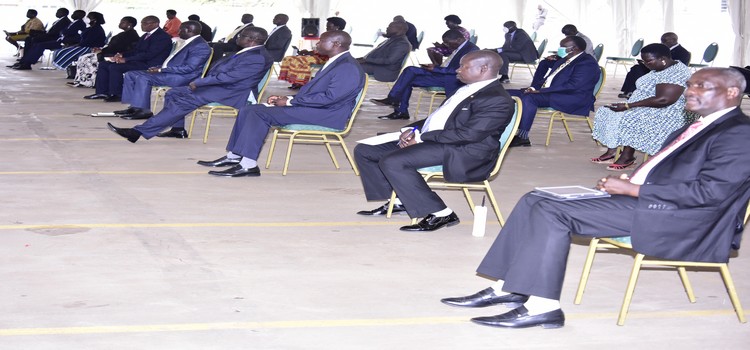Parliament has widened tax exemptions to mechanized agricultural inputs, in a bid MPs said will give the sector the much needed post Covid-19 boost.
The Chairperson of Parliament’s Committee on Finance, Hon Henry Musasizi said the removal of Value Added Tax from mechanised agricultural inputs will incentivize investment in the sector.
Continued charging of Value Added Tax on materials that are used to locally assemble mechanised farm equipments like tractors, reasoned Musasizi, continues to stifle local assembling plants.
“The VAT should be removed to attract investment in agriculture, if materials and parts used to fabricate agricultural trailers in Uganda are charged VAT; this will lead to an increase in production costs of 18 per cent, rendering Ugandan industries uncompetitive with those that import tractors,” said Musasizi.
While considering the Bill on Wednesday, 15 April 2020, MPs said the exemption is timely considering the ongoing Covid-19 pandemic will cause a spike on global food supplies.
Also exempted from the Value Added Tax are mechanised inputs such as irrigation machines, crop sprayers, tractor mounted hole diggers and combine harvesters among others.
MP Emmanuel Ssempala Kigozi (DP, Makindye-Ssabagabo Municipality) said the exemption will increase Uganda’s self-sufficiency on mechanised agricultural inputs.
The amendments enacted new measures for investors to qualify on tax exemptions on supplies such as construction materials for ware houses, factory, and inputs for machinery to have a minimum of 70 percent of employees being Ugandan, who should earn 70 per cent of the company’s wage Bill.

MP Ssempala welcomed the enactment.
“From the oversight visits done in most Chinese companies based in Uganda, you find that most positions held by foreigners can be taken up by Ugandans, we have all the professions need, let this threshold be increased every year to stop repatriation,” said Ssempala.
The new law has also relaxed capital requirement for investors seeking to enjoy the aforementioned exemptions, placing foreign companies at a minimum of US$10m, while local investors operating in Kampala metropolitan will pick incentives from US$300,000 investments.
Upcountry investors will benefit from the incentives from as low as US$ 150,000.
Such companies are also required by the new law to utilize 50 percent of the local raw materials during production.
The Minister of State for Finance, Planning and Economic Development, Hon Gabriel Ajedra, advised that the requirement to use 50 per cent of local materials may be waived in the event of shortages.

